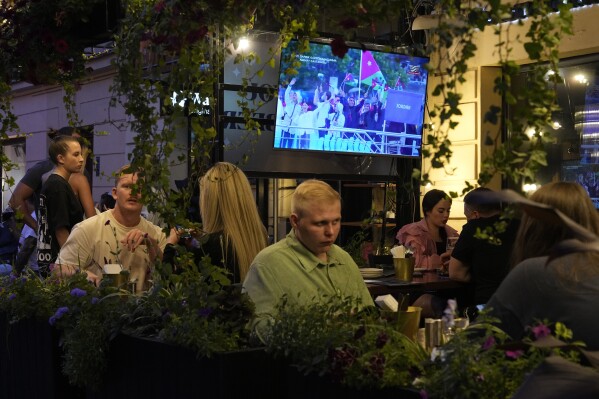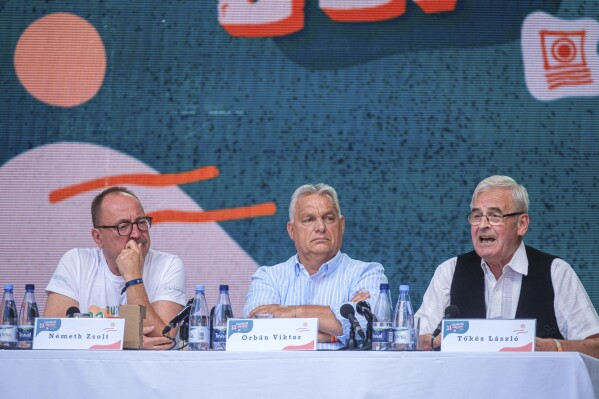Putin's Spiraling War Spending Hammers Economy
Russia's economic growth is predicted to drop according to its Central Bank, which has announced a dramatic key interest rate rise to curb growing inflation and an overheating economy following Vladimir Putin's full-scale invasion.
Russia's Central Bank increased the interest rate at which other banks can borrow from 16 percent to 18 percent—not far shy of the 20 percent announced at the start of the war—and the bank's governor Elvira Nabiullina did not rule out further rises.
Nabiullina has steered Russia's economy through the turbulence caused by Western sanctions aimed at choking Putin's war machine. Newsweek has contacted the Russian Central Bank for comment.
While the Kremlin can boast of predicted GDP growth for this year of 2.9 percent, it has been stoked by record military spending for the war. Huge troop losses and an exodus of people fleeing the draft have caused a labor shortage which is fueling wages and inflation as further macroeconomic woes loom in the coming years.
"Inflationary risks associated with sanctions have materialized," she told a press conference Friday. This requires a "greater tightness of monetary policy" to dampen down current year-on-year inflation of 8.6 percent.
"Initial plans to start cutting rates in the second half of the year had to be abandoned as inflation showed signs of spinning out of control," Bartosz Sawicki, market analyst at Conotoxia fintech, told Newsweek.
"Instead, additional tightening of monetary policy had to be enacted in an effort to cool down the overheating wartime economy," he said. "Military spending, running at around 7 percent of GDP, has led to serious macroeconomic imbalances, which are beginning to take their toll."
Nabiullina predicted Russian GDP will grow up 4 percent this year but would drop in 2025 to maximum level of 1.5 percent, or 0.5 percent in the most pessimistic scenario which is eight times less than the prediction for 2024.
"Overheating in the economy has remained considerable," she said, as she added that labor force and production capacity reserves "have been almost exhausted."
These factors mean that growth might slow regardless of any attempts to boost demand. "This boost will only further accelerate inflation," she said. "This is actually a scenario of stagflation that could only be stopped by way of a deep recession."
Stagflation is the simultaneous appearance of slow growth, high unemployment and rising prices. She said Friday's move "will help prevent such a scenario."
It comes as consumer price inflation (CPI) has gone up for the sixth straight month. Sawicki said the bank's goal to reduce this to 4 percent by the end of next year is "endangered by international sanctions leading to higher cross-border payment costs and rising fuel prices."
"It can be partially attributed to refinery capacity outages caused by Ukrainian drone strikes," he added, referring to Kyiv's stepping up of its attacks on the infrastructure for Russia's key export.
Disclaimer: The copyright of this article belongs to the original author. Reposting this article is solely for the purpose of information dissemination and does not constitute any investment advice. If there is any infringement, please contact us immediately. We will make corrections or deletions as necessary. Thank you.

